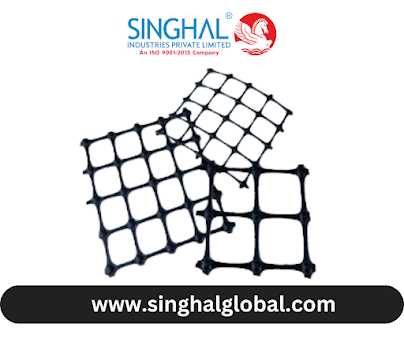The Ultimate Guide to HDPE Bags: Advantages, Benefits, and Everything You Need to Know
Introduction
The High Density Polyethylene Bags are a cornerstone of modern packaging, known for their durability, flexibility, and cost-effectiveness. These bags are widely used in various industries, including agriculture, construction, retail, and waste management. Whether you’re a business owner searching for reliable packaging solutions or an individual curious about the materials that make up the products you use daily, understanding the ins and outs of HDPE bags can be immensely beneficial. This guide will delve into the key aspects of HDPE bags, exploring their advantages, benefits, and why they are a preferred choice among plastic sack suppliers and manufacturers worldwide.
What Are HDPE Bags?
HDPE bags are made from High-Density Polyethylene, a thermoplastic polymer produced from the monomer ethylene. HDPE is known for its high strength-to-density ratio, making it a popular material for products that require durability and resistance to wear and tear. HDPE bags are widely used for packaging products like food, chemicals, waste, and retail items. They are also commonly employed in agricultural and industrial settings due to their ability to withstand harsh conditions.
Advantages of HDPE Bags
Durability
One of the most significant advantages of HDPE bags is their durability. These bags are resistant to punctures, tears, and wear, making them ideal for heavy-duty applications. Whether you're packing sharp objects, heavy items, or products that need to be stored for an extended period, HDPE bags offer the strength needed to keep your items secure.Lightweight
Despite their strength, HDPE bags are incredibly lightweight. This feature is particularly beneficial in reducing shipping costs, as the bags add minimal weight to the overall package. Additionally, their lightweight nature makes them easy to handle, store, and transport.Cost-Effective
HDPE bags are a cost-effective packaging solution. The production process for HDPE is efficient, and the material itself is relatively inexpensive compared to other polymers. This affordability makes HDPE bags a popular choice for businesses looking to balance quality with cost.Chemical Resistance
HDPE bags exhibit excellent resistance to a wide range of chemicals, including acids, bases, and solvents. This property makes them ideal for packaging chemical products, agricultural supplies, and other goods that may come into contact with hazardous substances.Environmental Impact
HDPE is recyclable, and many plastic sack manufacturers offer HDPE bags made from recycled materials. This makes HDPE bags a more environmentally friendly option compared to single-use plastics. Additionally, HDPE bags require less energy to produce and recycle than other plastic alternatives, further reducing their environmental footprint.Versatility
HDPE bags are versatile and can be used in various applications. They come in different sizes, thicknesses, and designs to suit the specific needs of different industries. From small retail bags to large industrial sacks, Plastic Sack Suppliers in India can be customized to meet the exact requirements of the user.
Benefits of HDPE Bags
Enhanced Product Protection
HDPE bags provide excellent protection for the products they encase. Their strong, resilient material ensures that items are safeguarded against physical damage, moisture, and contaminants. This makes HDPE bags ideal for packaging food products, pharmaceuticals, and other goods that require a high level of protection.Ease of Use
HDPE bags are user-friendly and easy to handle. They can be quickly opened, filled, sealed, and transported, making them a convenient option for both manufacturers and consumers. Their lightweight nature also means that they can be easily carried, even when filled with heavy items.Customizability
Plastic sack manufacturers offer a wide range of customization options for HDPE bags. Businesses can choose from different colors, sizes, and thicknesses to create a packaging solution that aligns with their brand image and meets their specific needs. HDPE bags can also be printed with logos, brand names, and other information, making them an effective marketing tool.Moisture Resistance
HDPE bags are highly resistant to moisture, making them suitable for storing and transporting goods that need to stay dry. This moisture resistance also helps to prevent the growth of mold and mildew, ensuring that the contents of the bag remain in good condition during storage and transit.Long Shelf Life
HDPE bags have a long shelf life, which means they can be stored for extended periods without degrading. This makes them an excellent choice for businesses that need to stock large quantities of packaging materials or products that may not be used immediately.
Conclusion
HDPE bags are an essential component of modern packaging, offering a combination of durability, versatility, and cost-effectiveness that is hard to beat. Whether you’re a business looking for reliable plastic sack suppliers or an individual interested in sustainable packaging options, Plastic Sacks Manufacturers in Delhi are a smart choice. Their numerous advantages, including strength, chemical resistance, and recyclability, make them a preferred option across various industries.
As the demand for environmentally friendly and efficient packaging solutions grows, HDPE bags will likely continue to play a crucial role in the global supply chain. By choosing HDPE bags, you’re not only investing in a high-quality product but also contributing to a more sustainable future.
Frequently Asked Questions (FAQs)
What are HDPE bags made from?
HDPE bags are made from High-Density Polyethylene, a type of thermoplastic polymer derived from ethylene. This material is known for its high strength-to-density ratio and excellent resistance to chemicals and environmental factors.Are HDPE bags environmentally friendly?
Yes, HDPE bags are considered more environmentally friendly than other types of plastic bags because they are recyclable. Additionally, many HDPE bags are made from recycled materials, further reducing their environmental impact.Can HDPE bags be used for food packaging?
Absolutely. HDPE bags are food-safe and are commonly used for packaging food products due to their excellent moisture resistance and ability to protect against contaminants.
.png)

.png)
Comments
Post a Comment